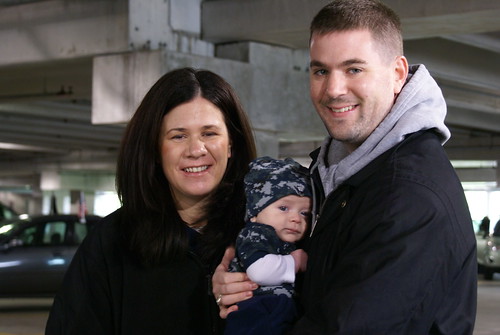In February 2013, President Obama announced that 34,000 troops would be returning home from Afghanistan within a year – half the number that are currently stationed there. With more troop reductions expected by the end of 2014, an ever-growing number of military service men and women are finding themselves adjusting to life at home. This new generation of veterans is slightly different. Many of them served multiple tours of duty and have faced the instability of the economy on top of painful combat experiences. Much of the effort to help these veterans transition into civilian life is focused on their careers, but it’s far from the only area where help is needed. If you are recently returned from overseas, these are the challenges you are most likely to struggle with.
1. Family Life
Reuniting with your spouse, children, parents, and other loved ones after your service is always a joyous occasion. But it’s not uncommon for their to be some apprehension on both sides. It’s okay to be exhausted when you get home and take a few days to really recuperate and get used to the daily life of your family. Spend time getting to know your children – how they have changed and what they have learned while you were away. Babies and young children may need time to cement their bond with you, but be patient. Show appreciation for the way your spouse has taken care of things during your service. Don’t expect your family to completely understand what you’ve been through, especially if you are the only one in your immediate family who has ever served in the military. You have a right to ask for slack, and you also have an obligation to give it.
2. Using Your Resources
The biggest positive side to being a veteran in this age is that there are more transition resources available to you than ever before. There are so many, it’s often hard to know where to begin. Visit your local Veterans Affairs Office or Military Transition Center to talk about your future, but be prepared to take things slow. Even if you don’t think you need it, talking to a counselor can benefit you in surprising ways. A transition adviser can discuss all aspects of your transition experience, from day-to-day life to planning for the future. When you’re ready, there are plenty of ways to get help formulating your resume and looking for a job. And if you take advantage of the GI Bill, you can go back to school or find licensing and vocational training programs. It helps to have someone explain your options.
3. Managing Financial Worries
With many families still struggling under the weight of the recession, veterans often feel like they need to rush back into civilian careers to keep their family afloat. But taking the time to really hone your skills and develop your resume, not to mention apply to the jobs you are actually passionate about doing, will save you a lot of time and frustration later on. Even then, unemployment for veterans is usually 2 percent higher than the national average, so it’s smart to have a transition savings fund in effect. Communicate with your family about your plans. There are plenty of doable ways for you to pursue a degree or work part-time while you train for something bigger. Understand that your civilian paycheck will be much different than your military one. With taxes, insurance, and mortgage payments, you need to make sure you’re pursuing something worth doing with the rest of your life.
Transitioning to civilian life is not easy, but you’re far from alone. Connecting with the right people and organizations will show you that there are thousands upon thousands of veterans struggling with the exact same issue. Nobody can fully understand your military experience but you, but that doesn’t mean everyone isn’t there to help.
– Author Brett Harris is an avid blogger. If you’re looking into more education after returning from a tour of duty, check out military friendly colleges.




